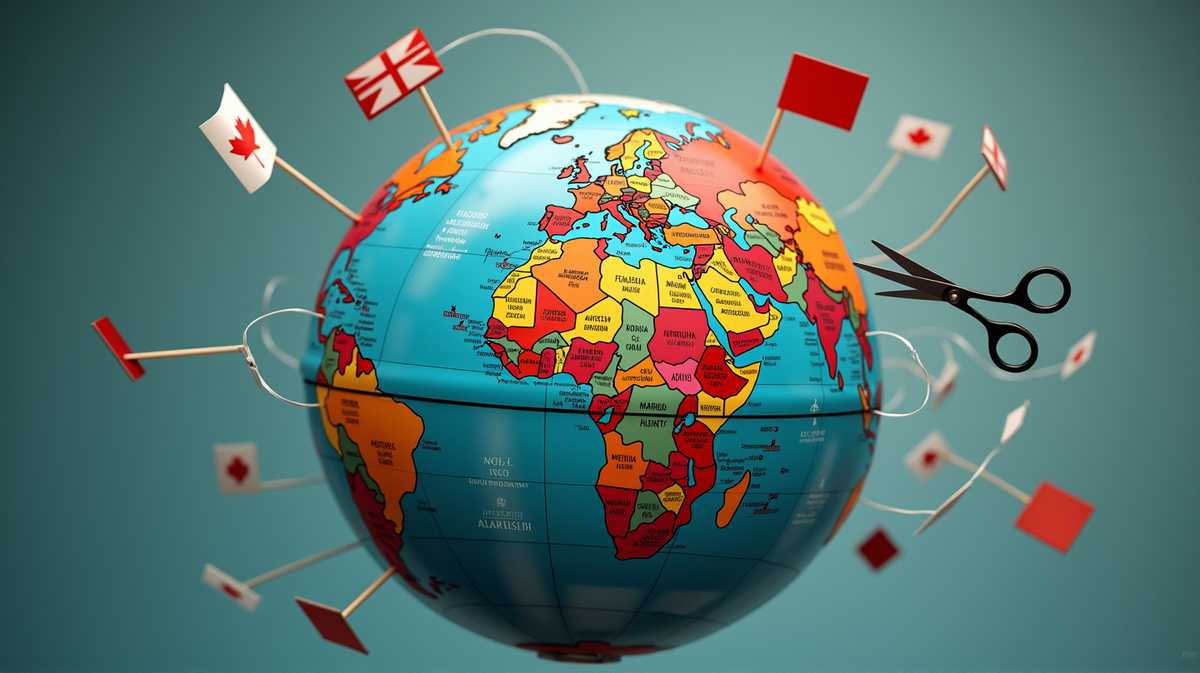Tariffs Shake Global Trade: What's at Stake for Canada, Mexico, and the World?

The Brewing Storm of U.S. Tariffs: What It Means for Global Economies
As whispers of new U.S-imposed tariffs on Canada, Mexico, and various other countries reach fever pitch, economists around the world hold their breath in anticipation. The economic ripples are far-reaching, and the tensions bubbling beneath the surface are set to reshape the global economic landscape.
Unleashing Economic Uncertainty
The United States, as a leading global economy, has historically utilized tariffs as a tool to balance trade inequities and protect domestic industries. However, the latest salvo in the form of tariffs targeting multiple trading partners — Canada and Mexico included — presents a multifaceted threat to international harmony and economic stability.
According to CBS News, analysts are particularly concerned about the ensuing economic uncertainty this move may instigate, as it raises serious questions about international collaboration and the seamless flow of goods and services across borders.
Economists Sound the Alarm
The main worry for economists hinges on the potential escalation into a full-blown trade war, reminiscent of historical economic stand-offs that bore considerable consequences. If affected countries respond with retaliatory tariffs, a cascading effect could irrevocably distort market stability, prices, and availability of goods globally.
“While countries often resolve disputes through diplomacy, the rise in protectionist measures alters strategy,” cautions an expert from the CBS News. The knock-on effects on job markets, consumer prices, and industrial growth are issues that cannot be sidestepped.
Impact on Canada and Mexico
The neighboring countries, Canada and Mexico, share robust trade relations with the U.S. and would likely shoulder the brunt of these tariff policies. Economies intertwined by agreements such as USMCA amplify the stakes. In recent discussions, Mexican industry leaders expressed concerns, stating that their economic pillars in agriculture and manufacturing could suffer significant setbacks.
Canada, on the other hand, while voicing hope for diplomatic resolutions, remains acutely aware of potential disruptions in key sectors such as steel, aluminum, and automotive.
What’s Next? Navigating the Trade Labyrinth
Governments and businesses are now tasked with navigating a convoluted path of negotiations, economic forecasting, and potentially seeking new markets or allies to mitigate the adverse effects. Transparency and open dialogue, as stated in CBS News, are essential cornerstones to establishing a resolution that prioritizes resilience and adaptability over dominance.
In conclusion, as nations worldwide brace for the consequences, the journey ahead remains uncertain but rife with opportunity for recalibrating international trade relations. The ultimate aim for many would be to emerge with a stronger, more inclusive global economic framework that champions sustainable growth and cooperation.
As the world watches closely, the unfolding situation is a stark reminder of the interconnected nature of modern economies and the delicate balance that sustains them.





